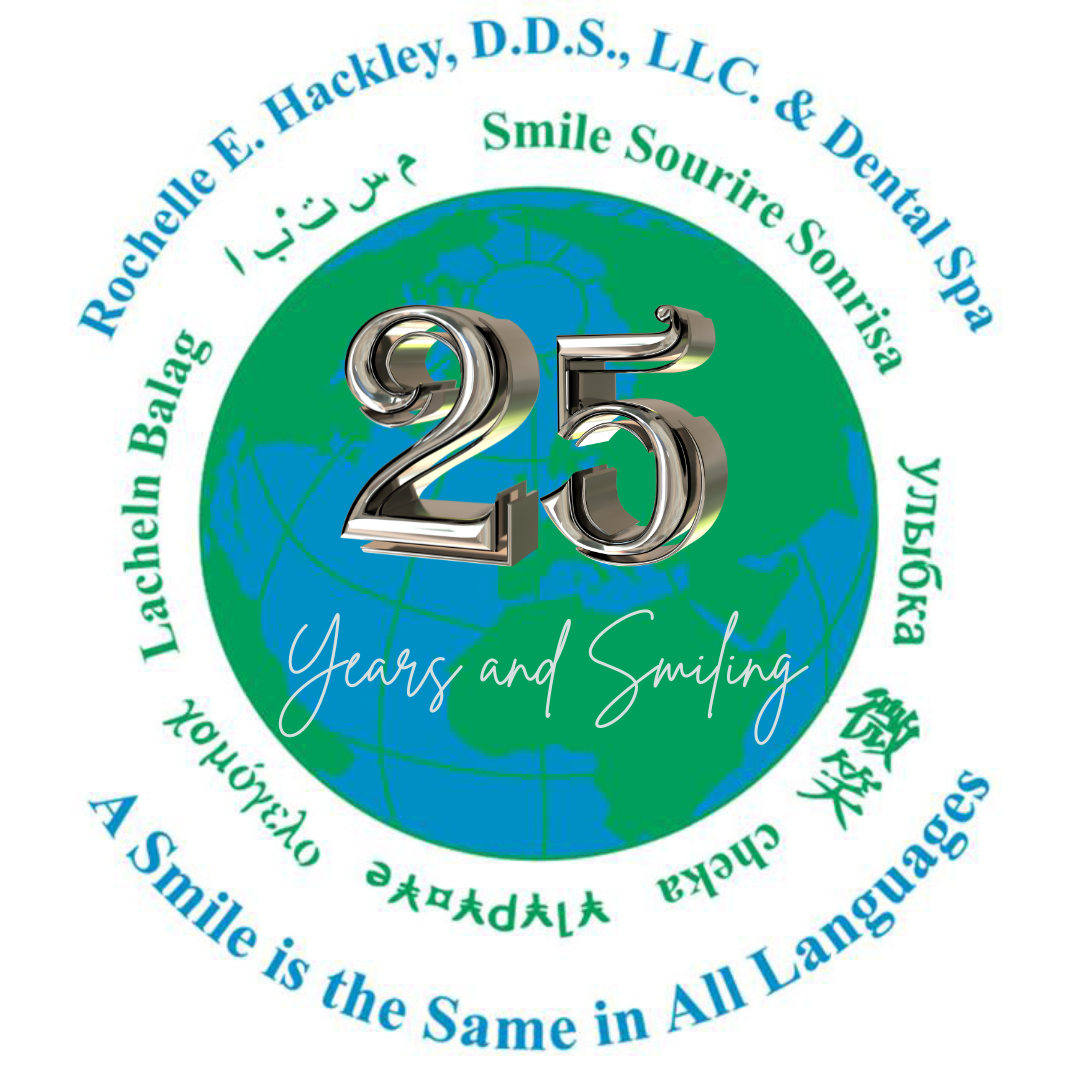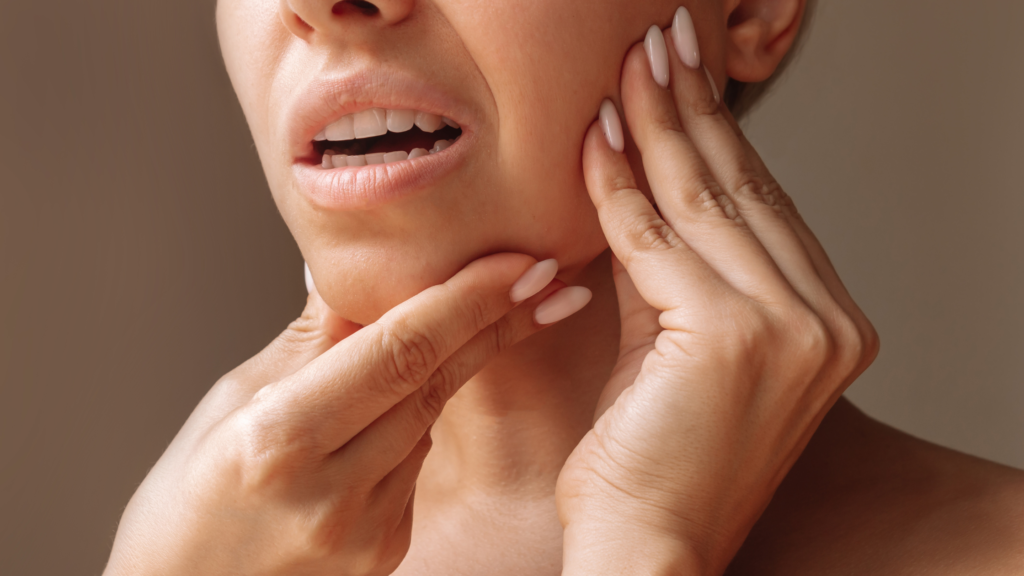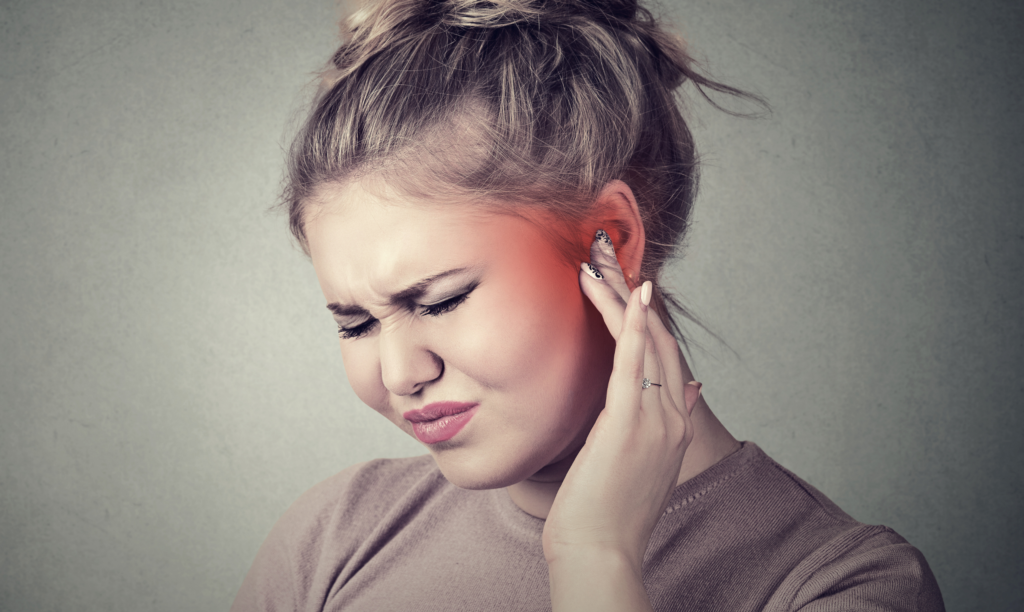Botox is often associated with cosmetic treatments, but its role in dentistry is growing. Many patients are surprised to learn that Botox can help relieve jaw pain, reduce teeth grinding, and even improve the appearance of a gummy smile. Below, we answer all of the Botox in dentistry FAQ near Rockville.
What Is Botox and How Does It Work in Dentistry?
Botox is a purified protein that temporarily relaxes muscles. In dentistry, it is used to relieve tension in the jaw. This reduces the effects of TMJ disorders, bruxism (teeth grinding), and other muscle-related discomforts.
Will Insurance Cover Botox Treatments at the Dentist?
Insurance coverage depends on the reason for treatment. Some insurance plans may provide partial coverage for Botox to treat medical conditions like TMJ pain or chronic migraines. Checking with your provider can clarify your benefits.
What Should You Expect During a Botox Treatment?
A Botox appointment at the dentist is quick and minimally invasive. The injection process takes only a few minutes, with little to no downtime. Most patients notice results within a few days, with full effects appearing in about two weeks.
Botox in dentistry FAQ near Rockville – Are There Any Side Effects?
Side effects are generally mild and temporary. Some patients experience slight swelling, bruising, or tenderness at the injection site. However, these symptoms usually fade quickly. In rare cases, temporary muscle weakness in the treated area may occur.
How Long Do the Effects of Botox Last?
Results typically last three to four months. For long-term relief from jaw tension or other dental concerns, patients often schedule regular treatments.
Botox offers both therapeutic and cosmetic benefits in dental care. If you have more Botox in dentistry FAQ Rockville, schedule a consultation with Hackley DDS in today.
TMJ (temporomandibular joint) disorders can cause significant pain and discomfort, often due to the overuse of jaw muscles and joints. Habits like chewing gum, clenching teeth, biting nails, bracing jaw muscles, or gnawing on non-edible objects can put undue strain on the jaw, leading to fatigue, pain, and oftentimes clicking sounds. While breaking these habits is an important step, it may not always be enough if the muscles or joints have already been damaged. Read on to learn more about the top TMJ treatments in Rockville and how they can drastically improve your life.
Comprehensive Treatment Plans
At Hackley DDS, Dr. Hackley takes a comprehensive approach to treating TMJ disorders by diagnosing the underlying causes and creating personalized treatment plans. Here are the top TMJ treatments in Rockville that we recommend for our patients:
Jaw and Neck Exercises: Tailored exercises help relieve tension, stretch overworked muscles, and promote healing, improving jaw function.
Physical Therapy and Chiropractic Care: These treatments are effective for long-term TMJ issues, helping reduce muscle tension and restoring normal jaw movement.
Oral Appliances: Custom night guards or bite plates help protect the jaw from excessive clenching and grinding while you sleep, minimizing further damage.
Medications: Pain relievers and muscle relaxants can help manage discomfort, reduce inflammation, and relax jaw muscles.
Injections: Trigger point injections, prolotherapy, and steroid injections target pain, muscle spasms, and inflammation, providing fast relief.
Botox® and Xeomin: These injectable treatments relax overactive jaw muscles, reducing tension and alleviating pain.
Posture Improvement
Poor posture, especially from leaning forward while using a computer or phone, can worsen TMJ symptoms. Poor posture strains the neck muscles, which in turn affects the jaw. To fully recover from TMJ pain, it’s essential to address both harmful habits and poor posture.
Put an End to Pain With Our Top TMJ Treatments in Rockville
If you’re dealing with persistent TMJ pain, contact Hackley DDS for a consultation. Gone are the days of continued searching for the top TMJ treatments in Rockville. Our top-rated team will work with you to develop a personalized treatment plan and help you get back to living pain-free, ASAP. Call us today to schedule your appointment!
Temporomandibular Joint Disorder (TMJ) affects the joints connecting your jawbone to your skull. About 12 million American adults suffer from TMJ. These joints allow you to perform essential movements such as talking, chewing, and yawning. When they become dysfunctional, it can lead to discomfort or more severe symptoms. Read on to learn more about TMJ treatments near Rockville.
What is TMJ?
First, you need to know what TMJ is. The temporomandibular joints are complex structures that work in harmony with surrounding muscles and ligaments. TMJ disorders occur when this system faces stress or misalignment. Common causes include teeth grinding, arthritis, injury, or even poor posture.
Symptoms of TMJ Disorders
TMJ can present with a variety of symptoms. Common signs include:
● Jaw pain or tenderness
● Difficulty or pain when chewing
● Clicking or popping sounds when opening or closing the mouth
● Locking of the jaw in an open or closed position
● Headaches, earaches, or facial pain
If left untreated, these symptoms can significantly impact daily life.
TMJ Treatment Options Near Rockville
Fortunately, there are several effective TMJ treatment options near Rockville. Read about them below:
● Lifestyle Changes: Stress management, improved posture, and dietary adjustments can reduce strain on the jaw.
● Dental Splints or Mouthguards: Custom devices can prevent teeth grinding and realign the jaw.
● Physical Therapy: Exercises and techniques can improve jaw movement and reduce pain.
● Medications: Anti-inflammatories, muscle relaxants, or low-dose antidepressants may help.
● Advanced Treatments: In severe cases, injections or surgical interventions may be recommended.
For TMJ Treatment Options Near Rockville, Contact Us Today!
Hackley DDS can provide a thorough evaluation and tailor a treatment plan to your specific needs. If you’re experiencing symptoms, contact us today! Together, we will explore the available TMJ treatment options near Rockville to regain comfort and improve your quality of life.
Temporomandibular joint disorder (TMJ) affects millions of people, leading to jaw pain, headaches, and difficulty chewing. If you’re struggling with TMJ symptoms, you might have tried nightguards, physical therapy, or even medication without much success. But did you know Botox is an effective treatment for TMJ? Read on to learn more about Botox for TMJ near Bethesda.
What Is TMJ and How Does Botox Help?
TMJ disorders occur when the temporomandibular joint, which connects your jaw to your skull, becomes misaligned or strained. Common symptoms include jaw stiffness, ear pain, and a clicking or popping sound when you chew or open your mouth.
Botox works by relaxing the jaw muscles that contribute to this strain. When injected into targeted areas, Botox temporarily reduces muscle activity, relieving tension and minimizing pain. It directly addresses the root cause of muscle-related TMJ discomfort.
Benefits of Botox for TMJ
Choosing Botox for TMJ near Bethesda offers several benefits. It is minimally invasive, requires no recovery time, and provides fast-acting relief. Many patients report improvements in jaw mobility and reduced pain within a few days of treatment.
Another benefit? It can also soften the appearance of a tense or square jawline. This makes it a dual-purpose treatment that enhances both function and aesthetics.
Botox for TMJ Near Bethesda – Contact Us Today!
At Hackley DDS, we specialize in providing personalized care to address your unique needs. Our team understands how debilitating TMJ can be. If you’re considering Botox for TMJ near Bethesda, we’ll ensure your experience is comfortable and results-driven.
We can provide a thorough evaluation and tailor a treatment plan to your specific needs. If you’re experiencing symptoms, contact us today! Don’t let pain control your life. Schedule a consultation today and take the first step toward lasting relief.
What helps TMJ pain? Smiling, laughing, chewing, talking- all of these facial movements come without a second thought. But, if you have TMJ those simple, natural movements could cause you a lot of pain and discomfort. Here are some tips from your local dentist on managing TMJ pain.
Understanding TMJ, TMD, and Jaw Pain
Temporomandibular disorders, including arthritis, dislocation, injury, infection, or stress can cause painful clicking and locking of the jaw joint, neck pain, headaches, and tinnitus. The temporomandibular joint is where the lower jawbone meets the skull. The muscles and ligaments in this joint allow you to move your mouth.
While TMJ symptoms may not last long for some people, they can last for years for other patients. This included pain and discomfort that is worsened by clenching, swallowing, chewing, or grinding teeth. Here are some ways you can manage your symptoms.
Relax
Yes, really. To help alleviate TMJ pain you should minimize wide jaw movements like chewing, yawning, yelling, or singing. Keep your muscles as relaxed as possible.
Reduce Stress
Another great way to help minimize pain and discomfort associated with TMJ is stress management. Yoga, meditation, gardening, and other relaxing activities can help you loosen and relax your jaw as well as calming your mind.
Stop Slouching
Sitting in an uncomfortable position for longer periods can cause you to feel more pain in your jaw. When you are sitting, choose a chair with good back support, and take frequent breaks to improve your posture. When driving, watching TV, or reading sit upright and ensure that your back is supported.
Exercise Your Jaw
Jaw exercises increase mobility in your joints and help alleviate pain. The best jaw exercises include:
Sleep Well
Getting good quality sleep is important for overall health. To help reduce TMJ pain you should sleep on your back and use pillows to support your neck. Don’t sleep on your stomach or tuck your hand under your jaw when sleeping.
Correct Bad Habits
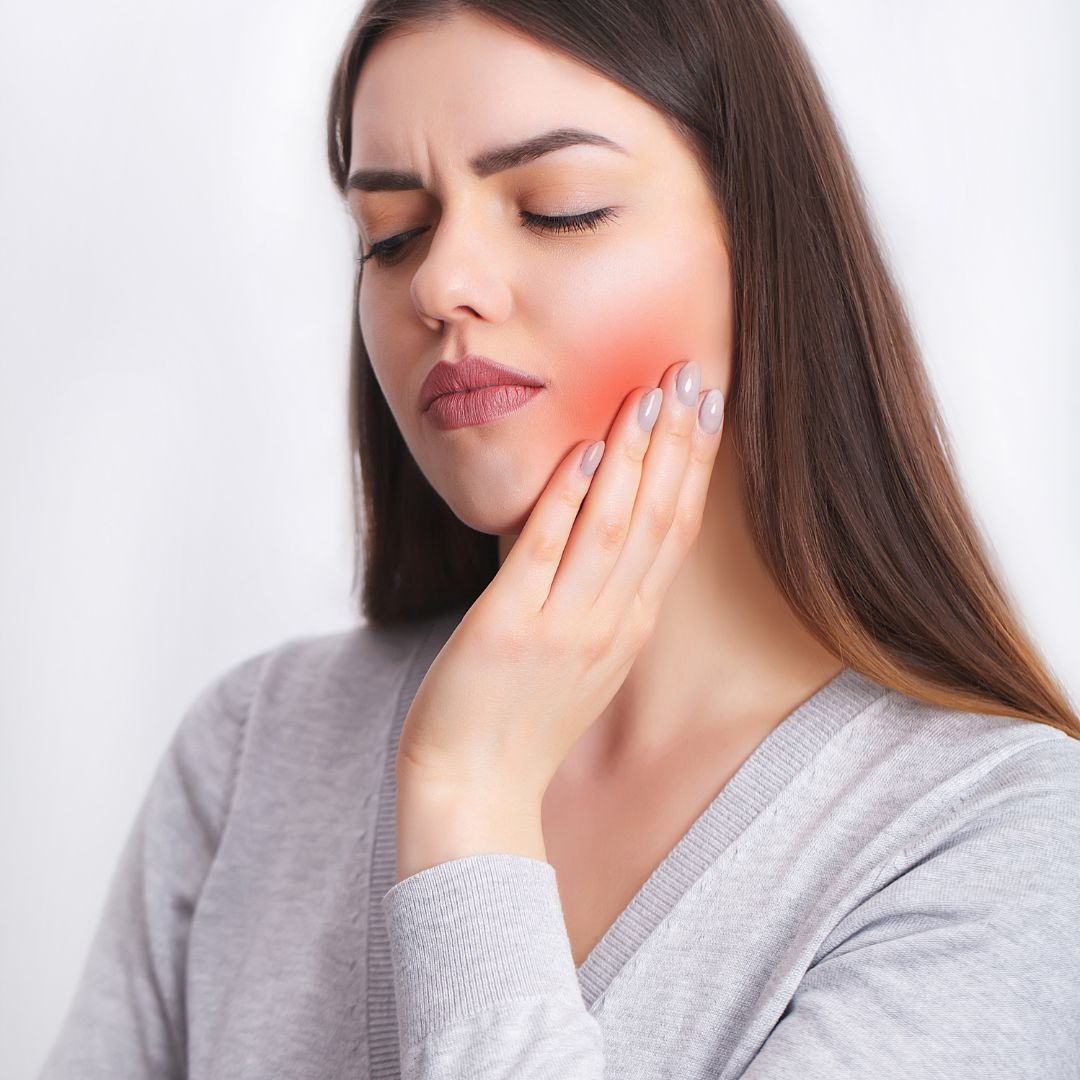
There are certain habits or tendencies that can lead to temporomandibular joint disorders. These include things like:
- Grinding your teeth
- Clenching your teeth
- Nail biting
- Resting your jaw in your hand
- Chewing cheek and lips
- Clenching jaw muscles and pushing tongue against the teeth
Take note of these unhealthy habits and discuss them with your doctor.
Heat & Cold for TMJ
Ice or a cold compress can help reduce swelling and pain. Alternatively, heat helps increase blood flow and relax your jaw muscles. Apply a hot or cold compress for 15-20 minutes at a time for pain relief.
[Related: Botox for TMJ]
Avoid Triggers
There are certain foods and activities that can trigger TMJ pain. These typically involve opening your mouth forcefully or moving your jaw in an extreme way. Try to avoid the following:
- Chewing gum
- Yawning
- Yelling
- Eating foods that require prolonged chewing
- Crunchy or hard foods
- Taking large bites of food
Treatment Options for TMJ
For some people, at home pain relief exercises may not be enough. Some patients need treatment to alleviate their pain and discomfort. There are different options for this depending on your anatomy and the cause of your TMJ.
What Helps TMJ Pain? TMJ Dentist in Rockville Maryland
Don’t suffer with TMJ pain. If at home treatments aren’t helping, you need to see a professional. We can do an exam, discuss your history, and create a customized treatment plan to minimize your TMJ pain. To learn more about your treatment options for TMJ please contact Hackley DDS today. Our TMJ dentist in Rockville Maryland is ready to help you.
Botox in dentistry is actually very popular. If you think that Botox is only used for cosmetic purposes, stick around. Here’s your guide to how Botox is used in dentistry.
Botox in Dentistry
Botox, a neurotoxin, is quite popular in the cosmetic industry. It is known for erasing wrinkles and fine lines. But it has applications beyond just aesthetics and some of those are in the world of dentistry.
Botox works by blocking nerve signals in muscles. This relaxes the muscle. While it has many uses, this is particularly beneficial in dentistry for treating issues related to muscle tension and hyperactivity.
TMJ Disorders
A significant application of Botox in dentistry is managing temporomandibular joint disorders. TMJ disorders cause discomfort and considerable pain for patients. In fact, they can even make it difficult to chew or speak.
Botox dentists can relax the muscle and reduce strain on the temporomandibular joint. This offers relief to patients and alleviates pain. Additionally, Botox has been found to reduce headaches associated with TMJ disorders.
Bruxism
Teeth grinding, also known as bruxism, is a condition that impacts many people. Excessive clenching and grinding can lead to tooth wear, fractures, and even damage to dental restorations.
Fortunately, Botox plays a crucial role in managing bruxism. It relaxes the jaw muscles responsible for teeth grinding. This reduces the intensity and frequency of grinding and clenching, which promotes oral health and protects the teeth.
Gummy Smile

Another way Botox is used in dentistry is by treating gummy smiles. Gummy smile is when the top lip rests high on the gums, showing a lot of gum when the patient smiles. Botox can reduce the appearance of a gummy smile by relaxing the upper lip. So, the gums remained covered when a patient smiles.
Other Botox Uses
Botox isn’t limited to standalone treatments in dentistry. There are other medical applications, like migraine relief and excessive sweating. It also has many cosmetic applications. In fact, your dentist is one of the best choices for a Botox injector. Due to their extensive knowledge and understanding of facial anatomy, dentists make great Botox injectors.
Wrinkles
Botox is known for its ability to reduce wrinkles and fine lines. But did you know that this can enhance your cosmetic dental treatments? Botox, in combination with dental implants or veneers is a great way to give you a natural looking, balanced smile. Botox reduces brow lines, forehead lines, crow’s feet, and lip lines. Combining Botox and cosmetic dentistry can give you a beautiful smile and rejuvenated, youthful appearance.
Migraine Relief
For patients who suffer chronic migraines, Botox may offer relief. Strategically injecting Botox around the neck and head reduces the frequency and severity of migraine headaches. Since Botox relaxes muscles and blocks pain signals that can trigger migraines, it offers great hope for patients who suffer chronic migraines.
Non-Surgical Facelift
Botox is a wonderful alternative to surgical facelifts. You can get a more youthful and rejuvenated appearance with a few simple injections. Targeting the right facial muscles can smooth the skin and give you a refreshed look while enhancing your natural beauty. Additionally, Botox can be used in combination with dermal fillers to give you optimal results.
Benefits of Botox in Dentistry
Aside from the benefits of treatments, Botox is also a minimally invasive treatment. Unlike surgical options, Botox requires no downtime, and you can resume your normal daily activities after treatment.
Additionally, Botox offers long lasting results. While they are not permanent, you can typically enjoy the benefits of Botox for 3-6 months or longer. It depends on your body and treatment areas.
Best Botox Dentist in Rockville
Now that you know what Botox is used for in dentistry, you can schedule a consultation with Dr. Hackley. Whether you are looking for relief with TMJ or want to erase wrinkles, we are here for all your Botox needs. Contact us today to get started.
If you have TMJ pain, you’ve probably tried at least a few different treatments to alleviate the pain. You may be wondering “does Botox help TMJ?.” Well, it could. Here’s what you need to know about Botox treatment for temporomandibular disorders.
How Botox Works
Botox is a neurotoxin. It is well known for its ability to lessen wrinkles and fine lines, forehead lines, crowns feet and more. But it also has therapeutic purposes. Since the primary function of Botox is relaxing facial muscles, it can relieve pain from tight jaws and other facial muscles that cause tension and headaches.
What is TMJ?
The TMJ, or temporomandibular joint, is a hinge for your mouth. It allows you to eat and talk. However, TMJ disorders can many painful symptoms. These include:
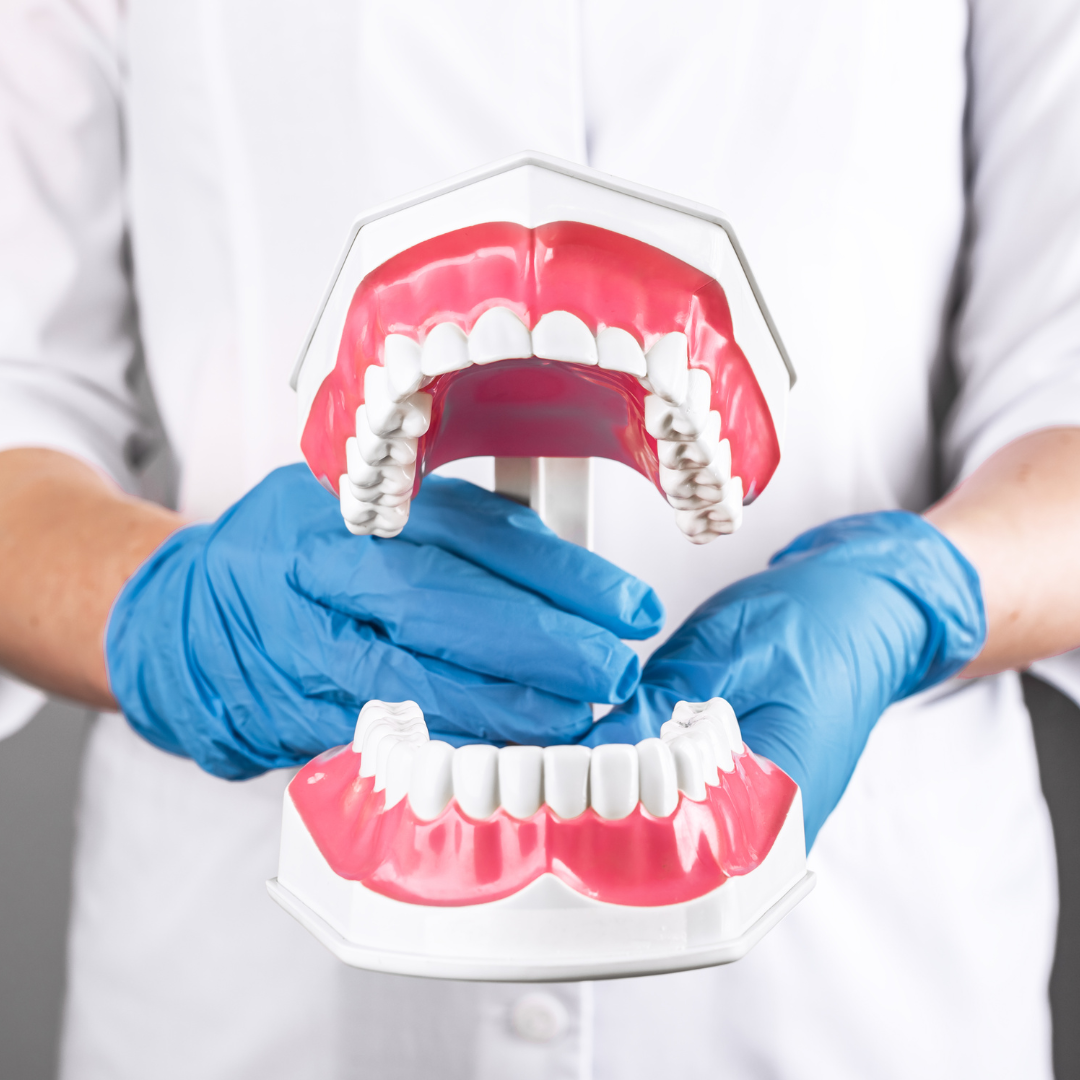
- Tension headaches
- Sore cheeks and jaw
- Teeth grinding
- Teeth clenching
- Neck and shoulder pain
- Jaw click
- Limited jaw mobility
- Hypermobility and hyperactivity
- Difficulty speaking or chewing
- And more
Since Botox relaxes muscles, it helps alleviate the pain associated with TMJ disorder. Botox for TMJ disorders is typically recommended as a complementary to other TMJ disorder therapy. But Botox alone may resolve certain symptoms.
Since Botox is temporary, the treatment does need to be repeated. However, the treatment lasts around 3-5 months.
Results
Studies found that Botox injections improved several measures of TMJ disorders. Overall, Botox showed a 59% pain reduction in the first month, and 70% reduction in pain after 6 months. Other research has shown that Botox injection in the lateral pterygoid reduced TMD symptoms regardless of the dosage, frequency, or injection method.
FAQ About Botox for TMJ
Since most people don’t’ know this treatment exists, it’s normal to have some questions about it. Here are some of the most frequent questions, but you can always schedule a consultation to discuss any of your questions and concerns with the provider.
Will Botox for TMJ disorder change the shape of my face?
It may, but only in a positive way. Overworked jaw muscles are tense and may cause your face to look wider. As Botox relaxes these muscles, the appearance of your jaw muscles may lessen. So, you get a slimmer face and pain relief, all in one!
Is Botox for TMJ covered by insurance?
This depends on your insurance company. Typically, Botox for cosmetic uses is not covered, but it can be covered to treat chronic medical conditions. So, ask your insurance company if your treatment may be covered.
How much does TMJ Botox cost?
The cost of your treatment will depend on a few different factors. This includes:
- How many units of Botox you need
- The cost per unit
- Providers time
- Supplies needed
- Other fees
- Whether insurance will cover a portion of your treatment
How much Botox do I need? Well, that depends on the severity of your symptoms. Some studies show that 20 units per side is an effective dosage. However, researchers note that women may need lower doses.
Can my dentist administer Botox?
Absolutely! In fact, your dentist may be the best person to inject Botox. Dentists have a deep understanding of the facial muscles and structures. This knowledge and training allow them to know exactly where to inject the Botox for the best possible results.
Where can I get Botox for TMJ disorder near me?
Hackley DDS is proud to offer Botox for cosmetic and therapeutic purposes. So, whether you want to address signs of aging, or improve a gummy smile or painful TMJ, we can help. Our talented dentists maintain the highest levels of accreditation and ongoing education. You can rest assured you are getting the best, most effective treatment. Contact us today to learn more.

